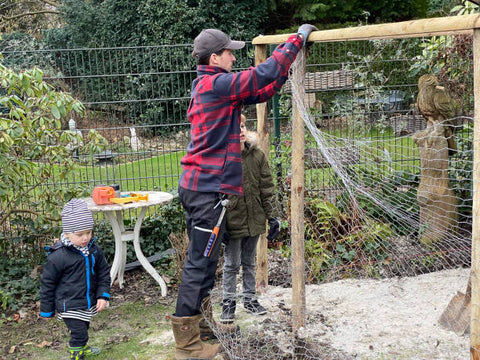Homesteading: A Pathway to a Meaningful Life Filled with Family and Self-Sufficiency

As the hustle and bustle of modern life pushes us to our limits, many of us yearn for a slower, more deliberate way of living. Homesteading is not merely about securing a better food source and achieving self-sufficiency; it is a journey that brings families closer, allowing them to build cherished memories and find profound meaning in the everyday moments they share. In this blog, we will explore the deeper impact of homesteading on our relationships, family life, and personal well-being.
The Value of Time Together
In today's fast-paced world, it's easy to get caught up in the race to achieve more, be more, and have more. But at the end of the day, what truly matters are the relationships we cultivate and the time we spend with those we hold dear. Homesteading offers us the chance to slow down and prioritize our families and ourselves.
By working together on tasks such as planting, harvesting, and animal care, families can bond over shared experiences and learn from one another. Whether it's sharing meals around a rustic table, embarking on nature walks together, or engaging in meaningful conversations while tending to the land, homesteading provides abundant opportunities for families to strengthen their bonds, nurture their relationships, and savor the simple pleasures of life.

Learning and Growing Together
Homesteading provides a unique environment for children to learn and grow. The hands-on education that comes from planting seeds, tending to animals, and cooking meals from scratch instills in children a sense of responsibility and a strong work ethic. As they watch their efforts bear fruit, they learn the value of hard work and perseverance.Children raised on a homestead learn the importance of responsible stewardship, gaining firsthand experience of the cycles of life and the interdependence of all living beings. This connection to nature fosters empathy, resilience, and a deep appreciation for the natural world.
In addition, homesteading encourages creativity and problem-solving. When faced with challenges like a broken fence or a sick animal, families must work together to find solutions, ultimately strengthening their bond and teaching valuable life skills.

Cultivating a Sense of Purpose
As we become more self-sufficient, we also gain a sense of empowerment and purpose. By growing our own food and providing for our families, we can take pride in our accomplishments and feel a deep connection to the land and the natural world.
This sense of purpose extends beyond the boundaries of our homesteads, as we are also contributing to a larger movement towards sustainability and environmental stewardship. By living in harmony with nature and reducing our dependence on unsustainable practices, we are setting an example for future generations and playing our part in creating a better world.
Nurturing Mindfulness and Gratitude
Homesteading encourages us to be more mindful of our surroundings and the resources we consume. As we learn to live with less and prioritize what truly matters, we can cultivate a sense of gratitude for the simple things in life – the warmth of the sun, the taste of a freshly picked tomato, or the laughter shared around the dinner table.
This mindfulness and gratitude can spill over into other aspects of our lives, fostering a greater sense of contentment and happiness. By focusing on what truly matters – our relationships, our health, and our connection to the earth – we can create a life that is not only sustainable but also deeply fulfilling.
Conclusion
Homesteading is so much more than just a means to obtain food and achieve self-sufficiency. It is a journey towards a more meaningful life, where we can spend quality time with our loved ones, learn valuable life skills, and cultivate a deep connection to the natural world. By embracing the homesteading lifestyle, we not only improve our own lives but also contribute to a more sustainable and harmonious world for generations to come.